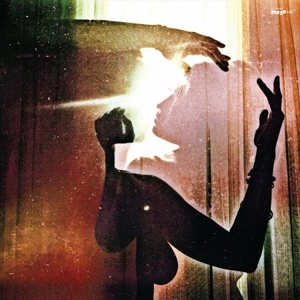Locust You’ll Be Safe Forever
From its unguarded emotion to its big, acoustic drums and touches of breakbeat-indebted syncopation, the […]

From its unguarded emotion to its big, acoustic drums and touches of breakbeat-indebted syncopation, the new Locust (a.k.a. Mark Van Hoen) album sounds very ’90s. Luckily, time has been kind to Van Hoen’s sensibility, and it seems that the 12-year hiatus that followed Wrong—his previous album under the name—failed to sap his prior momentum. (Granted, he’s also been releasing enthralling records under his birth name during this time, but he seemingly went dark for part of the the 2000s.) You’ll Be Safe Forever sounds of a different time, but its execution is deliciously foreign. It preserves in itself, like the solid amber excretion from Jurassic Park, an entire structure. In this case, it’s the affective structure that Van Hoen applies in his music, and the organism he resurrects is similarly unwieldy and magnificent.
The incredible anxiety surrounding genre and discernment in electronic music is not at play on You’ll Be Safe Forever, and the effect is somewhat like stepping onto the surface of a planet with weaker gravity. The imperative everywhere in culture is to be tasteful above all things, and this has led to a situation where cultural products are aesthetically irreproachable and totally lacking in flavor or insight, the quality of being something in itself, rather than something only in relation to other things. Of course, it’s not a difficult feat for Van Hoen, an artist who—despite the modesty of his renown—is not only thought of in terms of the still-fashionable side of IDM—Aphex Twin, Boards of Canada, and so on—but is also considered an influence on such enshrined home-listening music.
With “Fall for Me,” Van Hoen lays out the album’s agenda pretty shrewdly. Keening synths flush the surface with a summery, literary nostalgia, revealing the album’s little green heart right away, but Van Hoen counters sentimentality with a leet flutter of chilly hi-hats. The interstitial “I Hear a Quiet Voice” follows, a 30-second vignette pairing more brittle, British modular sounds with uncanny vocal samples that coo and, further back, wail with incoherent pain. You’ll Be Safe Forever proceeds in this indeterminate fashion, with Locust maintaining a razor’s-edge balance between comforting and disruptive sounds. From a slightly more distant perspective, he seems to be evoking genres only to brush them off—without a doubt, Van Hoen’s work has traits readily identifiable with certain ossified genres, but in his hands they are unsettled and unclichéd. The listener’s subconscious might dredge up a besmirched label like “trip-hop,” but it will never stick—these digressions simply reaffirm the project’s uniqueness. It should be noted, if only for the sake of completeness, that aside from its relatively sunny disposition and a certain poppy compactness, the technique that guides You’ll Be Safe Forever isn’t much different from Van Hoen’s previous album for Editions Mego under his own name, The Revenant Diary. It says much about Van Hoen’s continued relevance that, rather than inspiring a sense of familiarity or stagnation, this recognition just makes us want to hear more.

